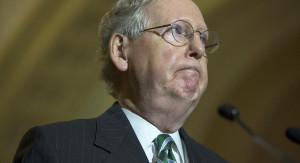That’s it? The U.S. attorney general won’t have to testify any more to the Senate Judiciary Committee?
That’s the decision of Committee Chairman Charles Grassley, R-Iowa, who said he has no plans to call AG Jeff Sessions back to Capitol Hill to explain himself.
It seems to me that the attorney general has some serious ‘splainin to do.
He told Judiciary Committee members during his confirmation hearing that he didn’t have any meetings with Russian government officials. Then, later, he thought differently about it said, yep, he did talk to the Russian ambassador to the United States.
This ought to be fleshed out a little bit.
What did he discuss? Did he talk to him about big things, such as, oh, whether the Russians were trying to influence the presidential election? Or how about whether the incoming Donald J. Trump administration would take back the sanctions that the Obama administration had leveled against the Russians for — that’s right — trying to influence the election.
Or … maybe it was just a casual conversation. “How’s the weather in Moscow in these days, Mr. Ambassador?”
Sen. Al Franken, a Minnesota Democrat and one of the Judiciary panel members, wants Sessions to come back to The Hill to testify.
I think he should, too. Chairman Grassley surely cannot believe he’s heard all there is to hear from the attorney general.

